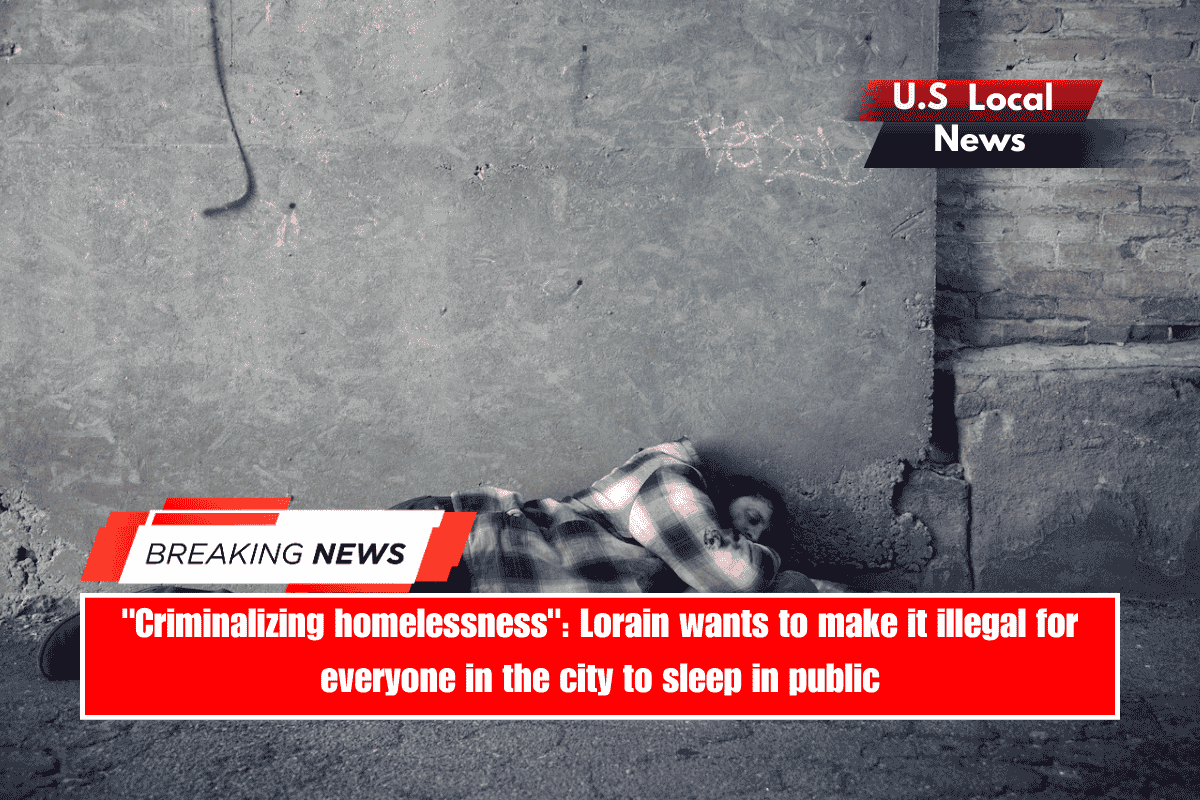Lorain, Ohio — Lorain is considering a ban on sleeping in public places, including sidewalks, alleys, and parked cars, under a proposed ordinance that critics argue would effectively criminalize homelessness.
The measure, which was discussed at Tuesday’s City Council meeting and sent to committee for review, would classify violations as fourth-degree misdemeanors, allowing police to issue citations and remove people from those areas.
If adopted, Lorain will join other Northeast Ohio cities, such as Brunswick, Mentor, and Ashtabula, that have enacted similar bans since the United States Supreme Court’s 2024 decision in City of Grants Pass v. Johnson. In that case, the Court ruled that cities can penalize homeless people for sleeping or camping in public places, even when there are no shelter beds available, and that such penalties do not violate the Eighth Amendment’s prohibition on cruel and unusual punishment.
Lorain’s proposed ordinance addresses public health and safety concerns about makeshift encampments while emphasizing the importance of keeping sidewalks, parks, and other public spaces open for pedestrians, recreation, and city operations. However, many residents believe the approach seeks to punish people who are experiencing unspeakable hardship.
“We’re not getting a solution by criminalizing the homeless,” resident Sabrina Gonzalez told council members at Tuesday’s meeting.
She argued that before levying charges, the city should prioritize connecting homeless people with shelters, social workers, job programs, and mental health services.
“I love that we’re looking to do something, but a misdemeanor and a fine [are] a lot to put on a homeless person that’s already struggling,” Gonzalez told me.
Aaron Knapp also opposed the ordinance, claiming that it would “end up spending more on punishing poverty than solving it.”
He informed City Council that the ordinance would result in an expensive cycle of citations, court cases, and jail time, and he advocated for cost-effective and proven housing-first programs in the city.
“Criminalizing sleep won’t solve homelessness and it will waste taxpayer money,” according to Knapp.
Brandon Wysocki told councilmembers that he believes in a more comprehensive approach to homelessness, and that police should not be treated as frontline responders.
“There’s a point where I can appreciate that we may have to rely on police intervention,” Wysocki told reporters. “I think police would agree that they are not mental health experts, they are not chemical dependency experts, and so it doesn’t make sense to use them as the first line of intervention in that equation.”
Wysocki urged the City Council to refer the ordinance to a committee for further discussion and public input.
Councilwoman Mary Springowski agreed that broader participation is required. She told Cleveland.com that referring the ordinance to committee was the appropriate step to ensure that the community had a say before a final decision was made.
“Everybody, get in there and have your say,” Springowski said. “If you don’t engage and you don’t take part of it, then you can’t complain when the decision is made.”
Springowski believes the ordinance was well-intentioned and aimed to address some of the public safety concerns raised by Lorain residents. However, she emphasized that any response must address the underlying causes of homelessness while also demonstrating compassion.
“We’re in a difficult situation because the community as a whole has been complaining and wants to be protected. And I understand that. “I understand,” Springowski said. “But we also need to do it in a humane manner. We don’t need to penalize people for being poor. Let’s figure out what’s causing the problem and how to best use our resources to solve it.









